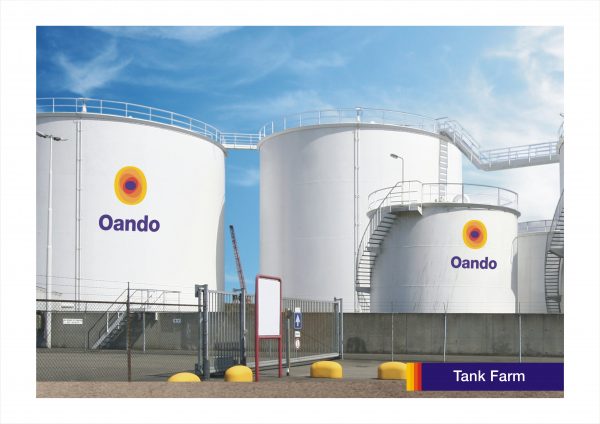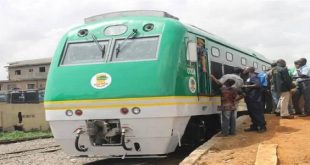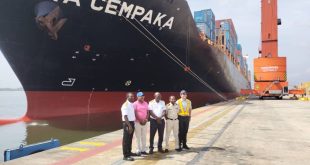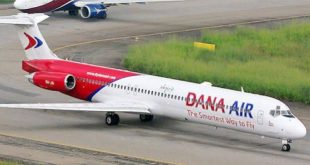
- Says Apapa, Ijegun tank farms preexisted residents
- Truck owners to sue shipping companies
- Drivers abandon trucks, fight owners over empty container policy
- Maersk Line yields to NPA directive on holding bays
By Kenneth Jukpor
While the multiplicity of tank farms in residential areas like; Ajegunle, Apapa and Ijegun – Satellite town, which poses an impending disaster to the residents in such environment has become a burning issue in the nation, the Department of Petroleum Resources (DPR) has said it has no solution to prevent tank farms from clustering residential areas across the nation.
A top source from DPR, who pleaded anonymity, told MMS Plus newspaper that the agency was bereft of ideas to solve the migration of citizens to locations where tank farms and mega filling stations were located.

The source who is an Environmental management expert at DPR, was speaking on the sidelines to our correspondent during a conference on Anti-Corruption and Prevention of Revenue Leakages in Nigeria’s Maritime/ Oil Industries, organized by the Association of Maritime Journalists of Nigeria (AMJON) on Thursday, in Lagos, last week.
According to the source, the ideal practice in the establishment of tank farms is to have them located in areas that aren’t occupied by residents but he lamented that the business opportunities of these facilities attract residents to the locations.

He asserted that the tank farms in Apapa, Ajegunle and Ijegun predated the inhabitants at those locations, arguing that DPR couldn’t stop communities from migrating to those locations after the facilities have been established.

However, this assertion contradicts the reality of tank farm development in Ajegunle and Satellite town as the locations were already occupied by residents for decades before the tank farm projects were developed.
“Today we are faced with a dilemma with the decision to relocate the tank farms or the host communities. You can’t just move people from their residents and relocating these tank farm projects is also a challenge” he said.
The source who is also a specialist in Process Safety and Risk Assessments, noted DPR ensures that adequate firewalls and firebricks are used in tank farms operating the country to curb the effects of possible fire disasters.
While maritime stakeholders have lamented that DPR wasn’t adhering to the tenets of the environmental impact assessment (EIA) which ought to be done before tank farms are located in an environment, the source assured that DPR doesn’t compromise on EIA.
“We don’t just do EIA; we begin pre- EIA when the initial plan for the development of any facility is submitted to DPR. We also ensure continuous environment management to ensure the standards are maintained. At DPR, we are always concerned about the environment and safety” he said.
However, our source didn’t reveal if DPR had paid recent visits to the tank farms in Apapa and Ijegun which are situated less than 1km away from each other as the tank farm owners allegedly do their reports themselves and submit to DPR to make payments and get endorsement.
On the other hand, experts have admonished the Federal Government to explore alternate means of distributing petroleum products, highlighting piping as a viable option to prevent an impending fire disaster in locations where tank farms are sited among residents.
During an exclusive chat with MMS Plus newspaper recently, the Chairman, Ports Consultative Council (PCC) Otunba Kunle Folarin admonished the government to explore piping as an alternate means to distribute petroleum products to tank farms of operators that would be situated far away from the port environment.
Otunba said; “There must be a procedure for establishing tank farms in the country. Whether the procedure is adequately followed is another issue, but the tank farm owners want to be seen to have followed the procedure without any effort to meet all the details in the procedures. The exposure of tank farms in the Apapa community is a massive threat to lives and commerce in the region and Apapa is a city that has over 2 million people”
Meanwhile, in another development as part of the effects of the clamp-down on trucks clustering the port environment by the Nigerian Ports Authority (NPA), truck drivers have started violent attacks on truck owners.
NPA began this implementation exercise after warning shipping companies to move their empty containers to their holding bays to rather than abandon empty containers on trucks clogging the ports access roads.
While he commended Nigerian Ports Authority (NPA) and the joint task-force comprising Nigerian Navy, Police and other security agents for clearing the containers clustering the port environs, the Lagos State Vice Chairman, Dry Cargo Section of National Association of Road Transport Owners (NARTO), Alhaji Abdullahi Inuwa Mohammed lamented that shipping companies have started extorting monies ranging from N15,000 to N20,000, a situation that have led truck drivers threaten to abandon trucks on the roads while others vented their rage on truck owners.
He told our correspondent that this situation led to the attack of one of the NARTO executives at Coconut; “A truck owner sacked the driver and other drivers started throwing sachets of water on him before beating him because they accused him of been oblivious of their sufferings. Some truck drivers have threatened to abandon our trucks on the roads because there is no alternative to park the trucks” he said.
While he noted that NARTO was willing to cooperate with NPA on the new policy on empty containers, he pleaded with the regulatory authority to relax its stringent implementation exercise and assist in providing alternative facilities for holding bays.
Alhaji Abdullahi Inuwa added that shipping companies who don’t have holding bays, should be allowed to take containers to certain locations provided by NPA and the shipping company should pay for the rentage and extra fines as penalty for not having holding bays.
“The directive of NPA on returning empty containers to Shipping companies holding bays has created an unpleasant situation because most of the holding bays have been filled to the maximum capacity. Some are not functioning and some holding bays only receive containers based on the shipping company’s directive so you find some trucks spend days at the entrance of the shipping company’s holding bay until the shipping company directs the terminal to receive. Some shipping companies are still directing our members to take the containers back to the ports because they have no holding bays” he said.
The NARTO boss revealed that the association has started compiling data on the number of members’ trucks laden with containers outside the holding bays of shipping companies.
Explaining the next line of action, he said; “We would tell our legal adviser to initiate legal action to demand demurrage on any container on our trucks or we would find any alternative place to discharge these containers and the shipping companioes would have to pay us demurrages whenever they decide to pick up their containers”
Meanwhile, Nigerian Shippers’ Council (NSC) and NPA have written to shipping companies to jettison their plans to introduce new charges for the return of empty containers.
Speaking to MMS Plus newspaper on this issue, the Public Relations Officer of the Association of Nigeria Licensed Customs Agents (ANLCA) Mr. Joe Sanni expressed confidence that shipping companies would adhere to NPA’s directive on holding bays.
He disclosed that Maersk Line, the biggest carrier in country had written officially to express readiness to comply with NPA’s that all empty containers should be taken to the shipping company’s designated holding bays.
“There is commotion at the ports as a result of this empty container quagmire. I learnt that TICT was shut down because they were accepting empty containers instead of diverting it to holding bays. We have received a letter from Maersk Line stating that they have agreed to play by the new rules. As the biggest carrier, it is expected that other shipping companies would follow suite” he added.
Prior to NPA’s directive that shipping companies take their empty containers to holding bays, shipping companies didn’t have to pay operators of the holding bays for the space and period occupied by the empty containers, whose cost is put at N10,000 per TEU with a handling charge of N15,000 per TEU.
They also didn’t pay the truck owners N35,000 to transfer containers to the ports when the need arises; rather they milked importers through container deposits and demurrage cost accruing to their coffers by congesting the roads, using them as holding bays for the empty containers, charging between N12,000 and N24,000 per TEU for unreturned empty container.
 MMS PLUS NG – Maritime, Aviation, Business, Oil and Gas News Online Newspaper with coverage in Maritime, Oil and Gas, Aviation, Power and Energy as well as Financial News
MMS PLUS NG – Maritime, Aviation, Business, Oil and Gas News Online Newspaper with coverage in Maritime, Oil and Gas, Aviation, Power and Energy as well as Financial News









